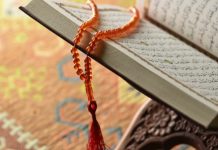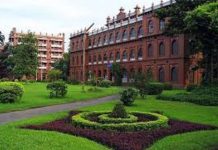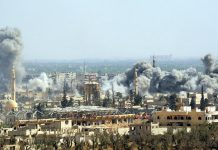JANUARY 29, 2019: DAILY SUN
The definition and meaning of democracy is very much relative. There are diversified conceptions on how to make it work. In essence, democracy is the notion that the majority rules which is, according to Abraham Lincoln, of the people, for the people and by the people. But if we look into the history we would find that pure democracy has never been tried. Even in ancient Greece, the birthplace of Democracy, not everyone got to vote. Slaves, for example, had no right to vote and they were more in number than the free population. There are many version of democracy and none has lasted for long. They are unstable and the larger the population, the more unstable they are. Since it is based on the notion that the majority always get what it wants, the rights of individuals are soon trampled. Many analysts believe that democracy is, in a way, the purest form of totalitarianism because, in the words of Mussolini, it brings “everything in the state and leaves nothing outside the state.” This is why many analysts define democracy as “the tyrant of the majority.” It allows a gang of people to steal the rights a property of others by means of the vote and government force.
Whatever is the reality- we should keep in mind that the world is changing faster than ever, and there is no certainty whether modern democracy will be able to keep up with the changes. Because this is a universal truth that- nothing is inevitable, until it happens, and predicting democracy’s future is no exception.
Now we are living in a world where the IT revolution is having profound effects on the economy, society and politics, positive and negative, where inequality in the developed world is on the rise, but where millions in the developing world are rising out of poverty, where religious fanaticism and extreme appears on the rise in many parts of the world, but where in other regions there is also an increase in a non-ideological, secular approach, and where over half the world’s population is urban, it is hard to say what opportunities democracy will have, what threats there are to it, and whether its response will be effective. So inevitably some big questions are there, will the connection between freedom and equality hold, or will it be broken – or will their relationship change under the pressure of new circumstance? Will democracy as we know it – a hybrid of government by elected officials, a free market economy and the rule of law?
Read more: Fascination with Glamorized Crime, abusion and violence
Western developed world are claiming as the owner of pure democracy. But as a matter of fact the west has a simple test of democratic virtue – the holding of elections and the protection of personal liberties. But in a broader sense democracy is not really that simple.
In democracy the popular phrase “people’s power” is pretty much paradoxical and it is becoming clearer day by day. Simply producing a “regime change” through a popular uprising against a faulty system of government or a hated individual ruler is not sufficient to produce a comprehensive democracy in a society. But it takes more than the toppling of a ruler or even a system to produce democracy.
In many cases elections are not enough to hold politicians and government officials permanently to account. In some cases they may not even take democracy forward, if they come too soon. For example- in the Balkans, western politicians, acting under American influence, rushed into elections in Bosnia. The results, at local and national level, merely entrenched the existing power-holders, almost invariably hardline nationalists and in some cases war criminals. Similarly, in the central Asian republics and the Caucasus, elections have frequently been used by authoritarian leaders as a coating to hide the repressive nature of their rule.
According to a new Handbook on Democracy Assessment- sponsored by the Swedish government-financed Institute for Democracy and Electoral Assistance (Idea) as Stuart Weir, one of the authors of that handbook, puts it – “Countries progress and regress, and sometimes do both at once. Progress towards democracy is far from being a universal goal even in those countries which have adopted electoral politics.” The handbook aims to promote a universal methodology available to citizens within a country to measure the state of democracy in their own societies.
Democracy, in the Idea view, involves popular control and equality, and the key value in ensuring it is participation. Elections are only one of a range of means for realising it. There also has to be a guaranteed system of civic, economic, social and political rights, as well as education for citizenship. There has to be a culture of participation, and people need the capacity and resources to take part.
Professor Weir and his colleagues looked in detail at Bangladesh, El Salvador, Italy, Kenya, Malawi, New Zealand, Peru and South Korea. Assessing a wide range of values, from minority rights protection and laws on freedom of information to executive decentralisation and media independence, they propose a framework with global applicability.
In order to measure the democracy of those countries with a history of ethnic or communal intolerance it has to be on the scale of “solidarity”. Unless there is respect for cultural and ethnic diversity, politics degenerate into a winner-takes-all mentality as we fin in the US Electoral College votes using a winner-take-all method. Meanwhile, western countries which pride themselves on long traditions of representative democracy need to be measured on the scale of “responsiveness”.
A perfect democracy must be participatory. Participatory democracy strives to create opportunities for all members of a population to make meaningful contributions to decision-making, and seeks to broaden the range of people who have access to such opportunities. Similarly, rule of law is one of the most vital preconditions for building a democratic society. If the citizens do not have any safety and security of their life, money, property and if there is no justice in the society then all the institutions of a state which should have been of the people, for the people and by the people will lead a country to a failed or dysfunctional state.
In order to build a real democratic country all the constitutional institutions, such as parliament, judiciary and election commission must be free and independent. If these institutions are highly loyal to the government and act under the dictation of the government then no democracy would be implemented in the society. At the same time basic human rights must be ensured. Moreover, without removing illiteracy, poverty, ensuring basic and lower cost healthcare facilities to the poor it would not be possible to establish a pure democracy in the society?
Freedom of expression is also very important. Print and electronic media is called the fourth state. If they do not enjoy freedom of expression and self censorship is imposed on them directly, indirectly imposing various black laws then the state could not be a democratic one.
The opposition political parties must be given equal facilities so that they could express their opinion and can make a constructive criticism of the government. Moreover they should be given the right to protest, demonstrate against any undemocratic and unruly behavior of the ruling party. There should be strict accountability in all the agencies, institutions without which corruption, administrative discipline, rule of law and above all democracy cannot be ensured. At the same time everyone should also keep in mind that in the name of freedom of expression and personal freedom no one should hurt others feelings and ideology very much unfairly.
There are some popular slogans in today’s world, such as democracy, human rights, freedom of expression and women empowerment. And the self declared protectors of those slogans are the powerful nations. Unfortunately, the double standard regarding establishment and protection of those slogans is very much obvious. If there is any political, economic and military interests of the powerful nations in any country or any region then those slogan do not bear any significance and then autocracy, dictatorship, brutality don not make any harm to democracy, human rights, freedom of expression and personal freedom.
Conflict of interest, ideology and above all civilizations are seemingly dominating world’s politics, economy and determining the balance of power in today’s critical world. World is now much more divided than ever in terms of ideology, belief, political, religious and ethnic identity. On the other hand injustice and endless greed for wealth and power are violation the rule of law and basic human rights.
Customizing the democratic system based on nationality, culture heritage, religion, history, tradition and ethnicity is the demand of the present ICT-base, electro-mechanical fastest changing world. Only election, changing regime through popular uprising is not enough for establishing a democratic society. Political and economic emancipation, freedom of expression, tolerance, eradication poverty , hunger, illiteracy from the society, practicing humane and religious values, welfare oriented economy, rule of law, corruption-free administration, removing injustice and greed from the society, ensuring equal opportunities for all citizens irrespective of race, religion, ethnicity, a participatory democratic society where every must be accountable for his or her responsibilities could bring a pure democracy in this high-tech modern world.
© Copyright: Reserved by the writer (Noore Alam Siddiqui)



































